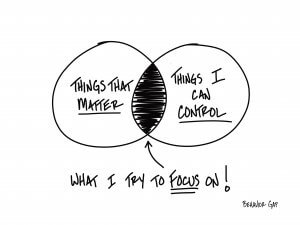
How much do I need to retire?
Financial PlanningFeb 19, 2020
This question is asked of me many times throughout the year by clients, prospects and random people I meet at social events. If you ask an average person how much money he or she will need to retire, the most common answer you will hear is $1 million. The real answer, like many answers in Wealth Management, is “it depends.” Why does it depend? Shouldn’t there be a standard amount? I wish it was that simple. The reality is that the couple that made a combined income of $100k per year is going to need less from their assets to complement their social security than the couple that had a combined income of $500k. Think about it. The lifestyles are going to be very different and one is more than likely going to spend a lot more than the other. One would hope that the couple making $500k saved more over the years; however, sometimes it is very surprising to see how little people save with so much income.
There are many factors that help determine how much one would need to retire comfortably. It starts with income and expenses. One old rule is that you would need to replace 70% of your income in order to retire. I have and will continue to challenge that and here is why. What did you do last Saturday? I bet the answer involved spending money on some level. Even if you lay around on the couch all day watching Netflix, you may take a quick break to browse Amazon and take advantage of the deal of the day. Regardless of what your answer was, the reality is that once you retire, every day is Saturday. Most people spend more money on their days off. Obviously, you will settle into a routine and your days off won’t be as cluttered with expensive endeavors. However, I would rather plan for more and have too much than plan for less and run out of money 15 years into retirement. With that said, if you are going to use income replacement to plan for how much you need, I would recommend using 90 or 100% of your income as your benchmark.
Income replacement is a very simple way to give you a general idea of how much you need to retire. There are other factors that go into that was well. For example, if you are saving 10% of your income into your 401k, paying for college and paying down your mortgage, you may not need your full income when the time comes to retire. Ideally, your mortgage will be paid off and your children will be finished with school and on their own by the time you decide to hang it up. You may also have other goals like traveling or buying a beach house. Are you beginning to see why it depends?
Once you determine how much income you need in retirement, you then need to figure out how much money you need to provide that income. First, you need to look at your guaranteed income sources. Social Security is the first one. Maybe you were fortunate enough to have a pension. Maybe you have a couple of rental properties. It doesn’t matter. Add up what you have in guaranteed income and subtract that from your monthly income need. Now you have your number that you need from your assets. Most financial planners will tell you that they are comfortable managing your money and letting you withdraw 4% of your assets annually. If you follow that rule, then you just need to find the number that produces the income you need with 4% withdrawals. For example, 4% of the $1 million that everyone thinks they need is $40,000.
There are a couple of other factors including longevity and legacy goals. If you want to leave your children a lot of money, then you have to factor that into your withdrawal rate. If nobody in your family lived past 65, maybe you want to get some of your bucket list items out of the way early just in case you follow the trend. If your parents are both still alive and your grandparents lived into their 80’s or 90’s, then you may want to play it more conservatively. Regardless of that, I always tell people that we have to plan to live until we’re told otherwise. As you can see, there is a lot more to it than just simply pulling a number out of the sky. If you are younger and just getting started, you should save as much as possible. Start saving as early as you can because the power of compounding is on your side. If you are getting closer to retirement, you should start thinking about some of the things mentioned in here. It probably wouldn’t hurt to talk to a professional. There is an old quote “failing to plan is planning to fail.” It holds true in a lot of things in life including retirement. Start planning now so that if you are a greeter at Walmart in retirement or doing some sort of part time work, it is because you want to do it and not because you are running out of money.


